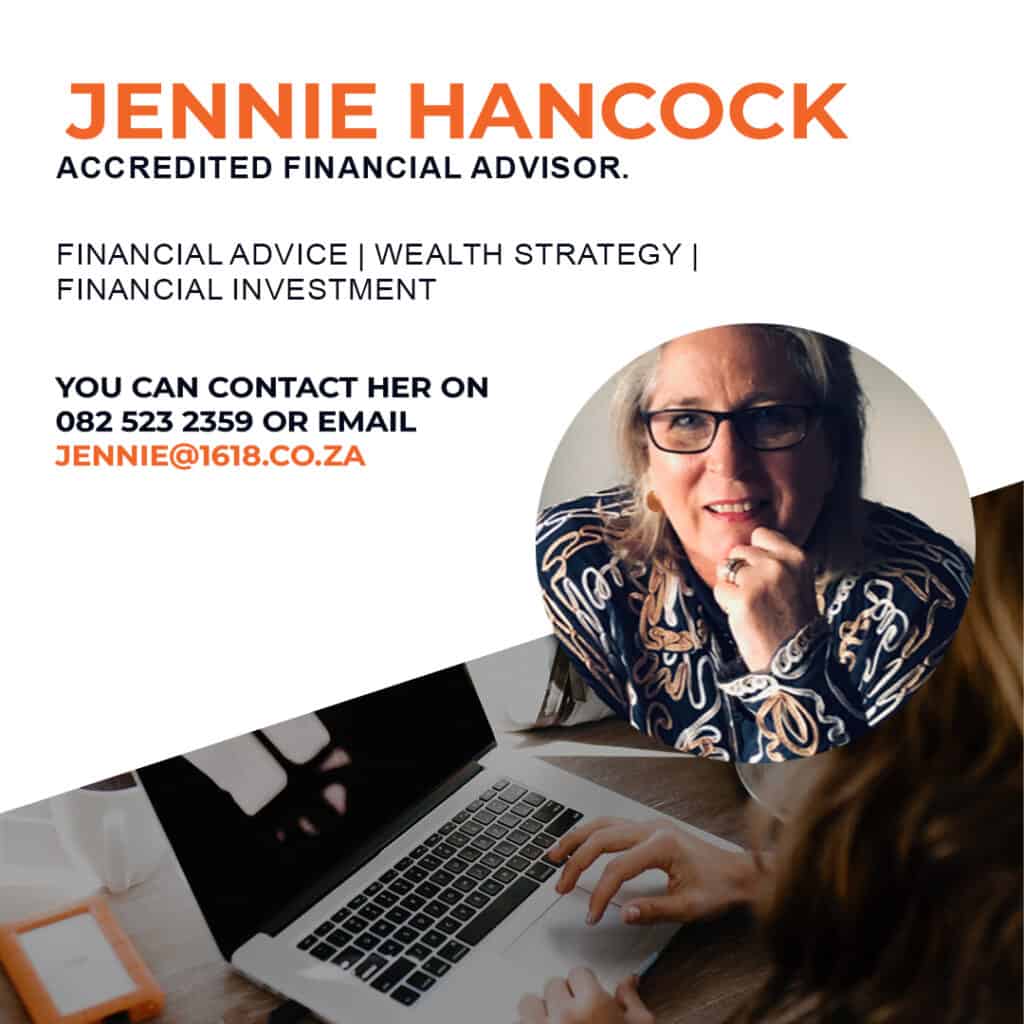BT JENNIE HANCOCK
Finding someone who can look after your (small) fortune, or steer you in the direction of how to make one, isn’t a search to be taken lightly.
The financial services industry is one in which money can be made – but not always for the investor – so caution is the watchword.
We’ve all heard stories of entire pensions being handed over to wolves in suits; of clients’ life savings being used to pay out other investors in Ponzi-like schemes; of unrealistically high returns; of ‘performance’ bonuses to advisors, regardless of whether they’ve ‘performed’ or not.
MEET JERRY
My late friend Jerry was a victim of failed foreign currency trader, Leaderguard, liquidated in 2006
He wasn’t alone – 1600 investors lost about R300-million – many of them attracted to the scheme by their financial advisors, who were in turn lured by the involvement of then reputable accounting firm, KPMG, appointed as Leaderguard’s auditors.

Jerry was sucked in by his financial advisor, let’s call him Rob. Jerry trusted Rob because he was ‘a nice guy’, who had, years earlier, invested Jerry’s pension and when Jerry needed money had ‘made a plan’ with it – allowing Jerry to withdraw enough for a part payment on a house.
So, when Jerry later inherited a million rand, he happily handed over his newly-acquired funds to Rob, who told him that Leaderguard could get him returns in excess of 18 percent per annum. The scheme was, said Rob, as ‘solid as the Rock of Gibraltar’. If it sounds too good to be true
Avoid giving your financial advisor power of attorney. This would enable them to buy and sell your assets and move them to any account they choose.
BUT IT DOESN’T HAVE TO BE THIS WAY
Not all financial advisors will hit shanks and freshies. There are albatrosses and eagles out there too and here are some pointers on how to tell the difference:
Beware of commingling –
This is when an advisor puts your money into an account with his or her name on it too. This gives them direct access to your funds, which is never a good idea. Reputable advisors will never take possession of your money. Some crooked advisors even go as far as sending out false monthly statements.
A case in the USA saw an investment advisor conceal his thievery by creating fake account statements, forging signatures on letters of authorisation and altering records of his clients’ accounts to block electronic notifications. He managed to steal US$5.8 million, spending it on luxury cars and holidays, as well as private school tuition for his children.
Jerry’s inheritance vanished without a trace, but for Rob it’s still business as usual. How was he to know Leaderguard was a scam?
That wasn’t the end of it: when Jerry turned 60, he discovered that, in order to get him the cash for his house, Rob had invested his pension into a big balanced fund on the stock exchange – and it wasn’t so big anymore.
After that, Jerry developed a distrust for all financial advisors. I had the misfortune of dealing with his last remaining money, which he watched like an amateur hawk, reacting to the slightest fluctuations as if he’d been tasered.
An advisor is hired for exactly what the name implies – advice.
That’s all. And while good advice is worth paying for – make sure you don’t end up paying too much. If you can, find an advisor who is negotiable on upfront costs and annual trailer commissions, which is a percentage based on the assets under management – i.e. R1-million at 0.5 percent would cost R5000 annually. The maximum amount should be 1.5 percent. (Bear in mind that investments rarely stay invested for 30 years and returns aren’t steady).
Jennie Hancock is an accredited financial advisor.
You can contact her at 082 523 2359 or email [email protected] for a check-in on your financial goal progression.





